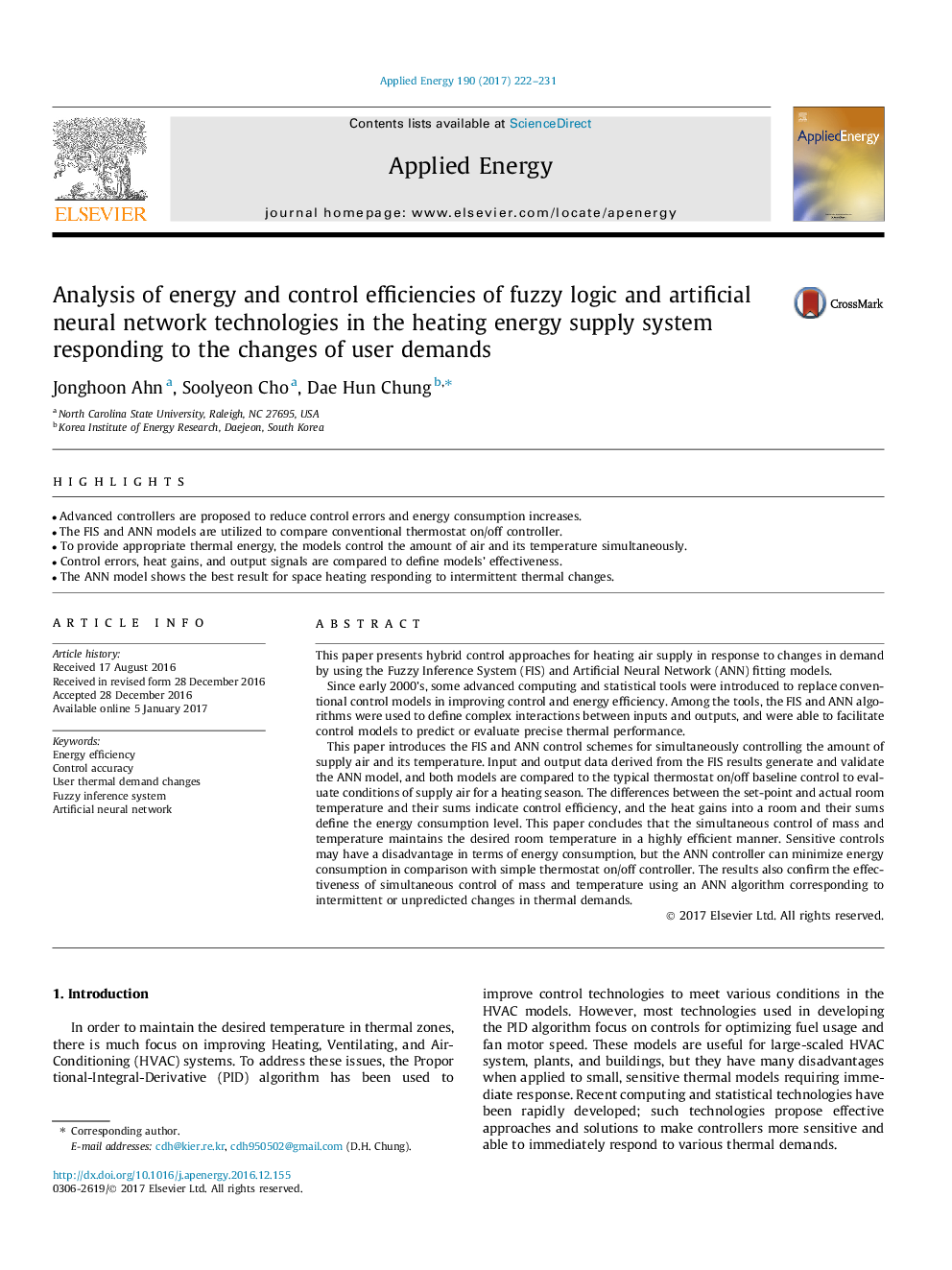| کد مقاله | کد نشریه | سال انتشار | مقاله انگلیسی | نسخه تمام متن |
|---|---|---|---|---|
| 6478479 | 1428100 | 2017 | 10 صفحه PDF | دانلود رایگان |
- Advanced controllers are proposed to reduce control errors and energy consumption increases.
- The FIS and ANN models are utilized to compare conventional thermostat on/off controller.
- To provide appropriate thermal energy, the models control the amount of air and its temperature simultaneously.
- Control errors, heat gains, and output signals are compared to define models' effectiveness.
- The ANN model shows the best result for space heating responding to intermittent thermal changes.
This paper presents hybrid control approaches for heating air supply in response to changes in demand by using the Fuzzy Inference System (FIS) and Artificial Neural Network (ANN) fitting models.Since early 2000's, some advanced computing and statistical tools were introduced to replace conventional control models in improving control and energy efficiency. Among the tools, the FIS and ANN algorithms were used to define complex interactions between inputs and outputs, and were able to facilitate control models to predict or evaluate precise thermal performance.This paper introduces the FIS and ANN control schemes for simultaneously controlling the amount of supply air and its temperature. Input and output data derived from the FIS results generate and validate the ANN model, and both models are compared to the typical thermostat on/off baseline control to evaluate conditions of supply air for a heating season. The differences between the set-point and actual room temperature and their sums indicate control efficiency, and the heat gains into a room and their sums define the energy consumption level. This paper concludes that the simultaneous control of mass and temperature maintains the desired room temperature in a highly efficient manner. Sensitive controls may have a disadvantage in terms of energy consumption, but the ANN controller can minimize energy consumption in comparison with simple thermostat on/off controller. The results also confirm the effectiveness of simultaneous control of mass and temperature using an ANN algorithm corresponding to intermittent or unpredicted changes in thermal demands.
Journal: Applied Energy - Volume 190, 15 March 2017, Pages 222-231
